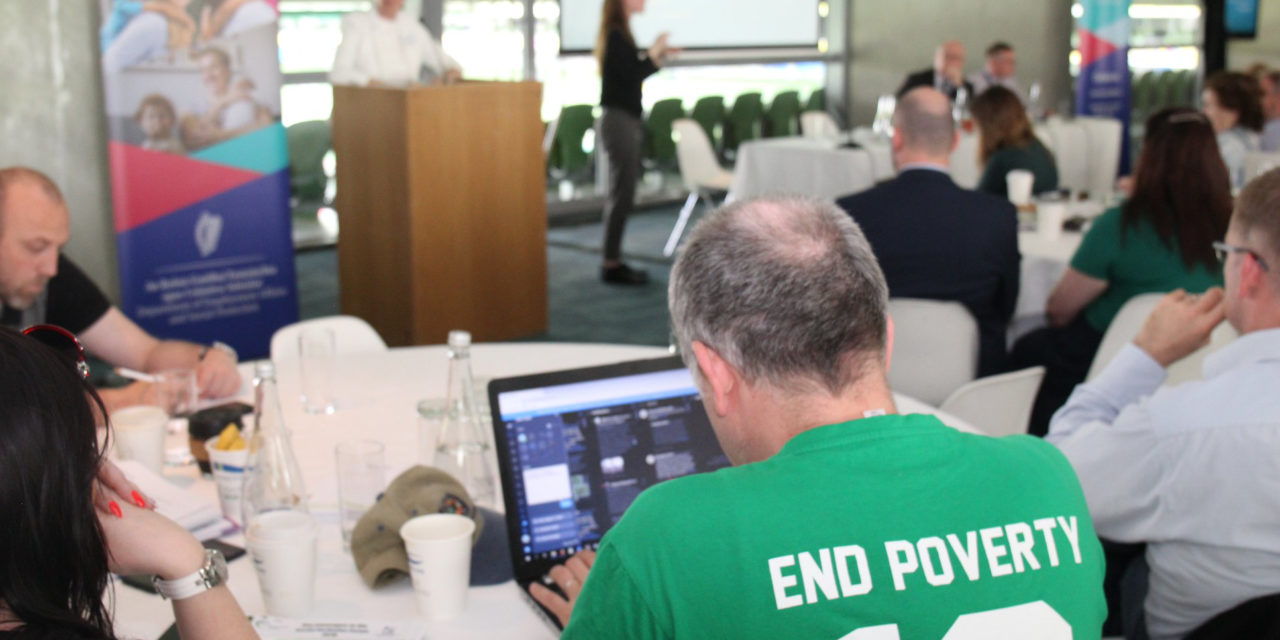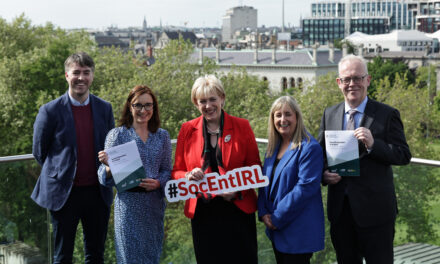At SIF 2019, feedback from community representatives seened to ask one big question: was consultation on the new social inclusion strategy all a sham?
It was a bright – if overcast – day in the Aviva Stadium, Dublin, and the shouts of kids on the pristine pitch drifted in through the open doors into a far more sober atmosphere.
This was the 2019 Social Inclusion Forum, and the gathered audience – representatives from the community and voluntary sector, the Department of Employment Affairs and Social Protection (DEASP), the European Anti-Poverty Network (EAPN) and Community Work Ireland (CWI) – was debating the finer points of an as-yet-unseen but soon-to-be-released [before the summer, we’re told] strategy for social inclusion.
The forum was to take place under the theme of ‘Collaborative Working at Local and National Level’, but it was immediately apparent that collaboration wasn’t on most people’s minds. It was the strategy that was garnering the most attention.
After a presentation on the key points from Dermot Coates of the DEASP, the Minister for Employment Affairs and Social Protection, Regina Doherty, TD, took the podium to highlight some aims: to focus on reducing levels of consistent poverty to 2% or less, and to make Ireland the most socially inclusive State in the European Union.
Minister Doherty also spoke about the importance of consultation to processes like the development of this strategy, saying, “We want to hear what you have to say, but also to heed what you have to say…The next job is for me to sit down, shut up, and listen to what you have to say.”
The minister also reminded those in the room that the responsibility for developing social inclusion practices in Ireland doesn’t just fall on the DEASP – there are other departments (such as the Department of Rural and Community Development, for instance) that play a role.
She made promises too: “The new social inclusion strategy will set out real goals and real timelines so those working in the sector will be able to hold us to account.”
Constructive criticism
At that point, the forum programme said, we were to pivot to ‘feedback from regional workshops’, but perhaps ‘constructive criticism’ would have been a more appropriate name for it. CWI’s Ann Irwin and EAPN’s Paul Ginnell were quick to point out areas in which the strategy could be improved, as well as failings in the consultation process.
Irwin spoke particularly strongly about how little input groups had had in the process, in spite of lip service from the department.
“We’ve been waiting for the consultation for a long time,” she said, “and we will welcome it when it comes, but it hasn’t come yet. The new strategy is already done and dusted, and shows very little effort at consultation – at least that we’ve seen.”
Ginnell highlighted the lack of considerations made in the past for those with disabilities and encouraged the department to take their needs into account.
But it was voices from the crowd that were the most powerful in many instances, with impassioned speeches from people living and working in real communities around the country. They called for greater effort to be made to address Travellers’ rights, homelessness and poverty in its many forms.
Indeed, the team from the DEASP present at the forum acknowledged holes in the existing strategy. Jacqui McCrum, who was moderating a Q&A session in the afternoon, spoke honestly: “Following feedback, and listening to lots of the issues being raised today, we know we need to do more work to get [the strategy] right.”
So where does this leave us? Before we broke up into workshops to discuss everything from housing to getting more from data, Coates delivered the line that will likely be remembered most clearly by those present: “If by 2025 [the end of the new strategy period] we haven’t overcome the issues that we’re facing today, we will have failed.” We’ll see how it goes.





